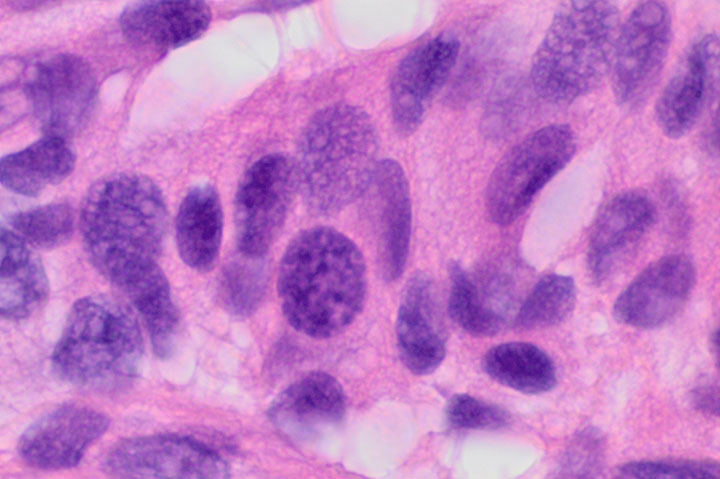Chemotherapy Regimen for Post-Surgery PNET Patients

Mikael Häggström, M.D.; Wikimedia Commons
Could postoperative chemotherapy treatment help patients with high-risk pancreatic neuroendocrine tumors?
Pancreatic neuroendocrine tumors (PNETs) are rare, accounting for less than 3 percent of all pancreatic cancers. Surgery is the best curative option, but for around 15 percent of patients, the cancer comes back. In 2019 the U.S. Neuroendocrine Tumor Study Group published a new recurrence scoring system, Zaidi score, to guide surveillance strategies after PNET surgery.
A chemotherapy treatment combining temozolomide and capecitabine (CAPTEM) was found to be effective in patients with advanced low- to intermediate-grade pancreatic neuroendocrine tumors in the metastatic setting. This phase II clinical trial seeks to test the effectiveness of the CAPTEM therapy in PNET patients with high-grade tumors who have had surgery.
What Is CAPTEM?
Temozolomide works by slowing or stopping the growth of cancer cells. Capecitabine gets metabolized into fluorouracil (5-FU), which disrupts the cell replication cycle. Additionally capecitabine has been found to make temozolomide much more effective. The combination works well for neuroendocrine tumors, including PNET.
Joining the Trial
The trial is for patients with high grade PNET and at a higher risk of recurrence, with a Zaidi score of ≥3. Patients must have had their tumors surgically removed. Participants will be randomly divided between one of two arms. The first arm will receive the CAPTEM combination and will be followed for recurrence; the second arm will be followed for recurrence with no active treatment.
We encourage you to consult your physicians for clinical trials that may be right for you. The website ClinicalTrials.gov provides more details about this trial as well as many others. You can visit the Let’s Win Trial Finder for a list of all active pancreatic cancer clinical trials.





